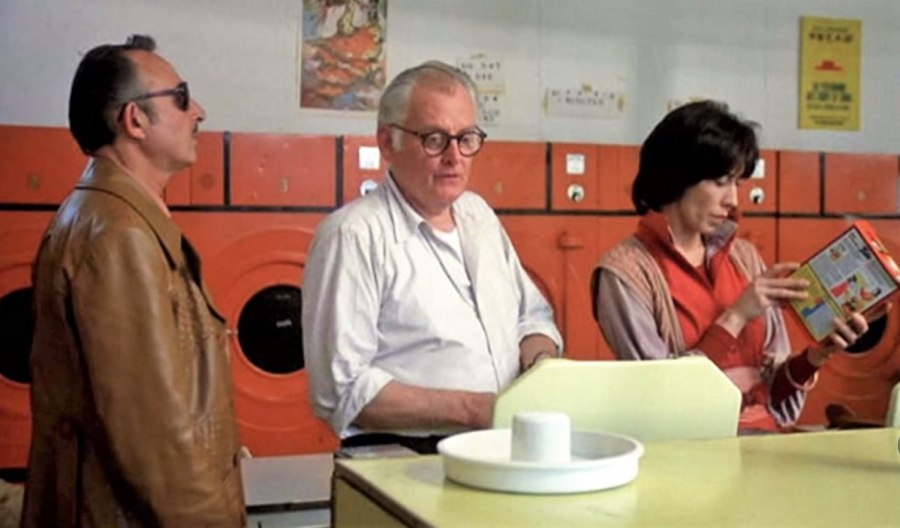Hidden Gem: ‘The Late Show’ (1977)
Lily Tomlin, Art Carney, and Bill Macy star in “The Late Show”.
Aug 24, 2021
Filmmakers of the so-called New Hollywood era of the late 1960s and 1970s frequently made their work more difficult in their attempts to work against conventions of the popular established genres and film styles of the previous eras. Take the famed screenwriter/director Robert Benton’s 1977 contemporary crime film, “The Late Show.”
This film pays homage to the classic detective-crime thriller, but it used several iconic comedic television actors, like Art Carney and Lily Tomlin, as its leads. Both actors achieved wonderfully effective performances and oddly amusing chemistry, working against their usual typecasting to tell a compelling story that was much like the late-night movies that many television channels used to frequently broadcast after the regular network programs ended each night.
Carney, who began his career playing the goofy sidekick to Jackie Gleeson on TV’s “The Honeymooners,” plays the grumpy, aging private detective Ira Wells, a guy whose best days are behind him. He’s divorced, lives alone in a one-bedroom Los Angeles apartment, has a bum leg, ulcers and a hearing aid. He uses ‘40s street slang, calls most women “doll” refers to “c-notes” ($100 bills) and cheap “gumshoes” (low-class detectives), among other quaint phrases. One evening, his former partner Harry Regan (Howard Duff) shows up at his front door bleeding from several bullet wounds and taking his last breaths.
Right after Harry’s funeral, Ira is approached by a sleazy talent agent Charlie Hatter (Bill Macy, then co-star of television sitcom “Maude”) and a young woman, Margo Sterling (Tomlin) who needs someone to find her stolen cat. Wells is upset and most concerned about finding out who killed his ex-partner, and Margo can’t afford the cost of his fees. Benton’s complex developing plot quickly reveals Harry knew a friend of Margo’s named Brian Hemphill and several others who were involved in a robbery of a rare postage stamp collection.
Tomlin, who achieved her early fame as one of the creative ensemble members on the ‘60s variety show “Rowan and Martin’s Laugh in,” makes Margo an amusing, kooky hippie-type with a serious slant. She claims she’s a former actress who now designs clothes, smokes a little weed, frequently meditates and constantly talks about her karma.
Get The Daily Illini in your inbox!
Margo arranges for her friend Brian to meet at Ira’s apartment, but he’s gunned down by a hitman on the street outside Ira’s place. Soon, Ira, who is basically committed to finding his buddy’s killer, partners with Marlo to help solve the many mysteries set up by Benton’s many convoluted subplots. They encounter a cheap thief and con man, Ronny Birdwell (Eugene Roche, the guy known for his popular Ajax television commercials) and his ruthless bodyguard, Lamar.
After meeting up with a thug who’s been seeing Birdwell’s wife in a run-down apartment, Ira and Marlo recover her lost cat but get chased and then repeatedly shot at by more of Birdwell’s men. Margo gets so into their investigative collaboration she suggests she’d like to become his partner full time, like Nick and Nora of “The Thin Man” fame.
Much like the Raymond Chandler crime tales popular in the 1930s and ‘40s, Ira gets beat up and harassed by various tough guy criminals but remains dedicated to his mission. Benton fills the screen with typical low-key film noir lighting in dark bars and sleazy apartments while a soft jazz trumpet score accompanies many scenes. Charles Rosher Jr.’s photography compliments this noir style with a contemporary Southern California look.
Benton would go on to win the Oscars for directing and writing “Kramer vs. Kramer” (1979) and later the award for writing “Places in the Heart.” Before making “The Late Show,” he wrote the screenplays for films like “Bonnie and Clyde” and “What’s Up Doc?” achieving a unique understanding of traditional genres while adding his own unique modern twists. This becomes most successfully realized in “The Late Show,” which also received an Oscar nomination for best original screenplay.






